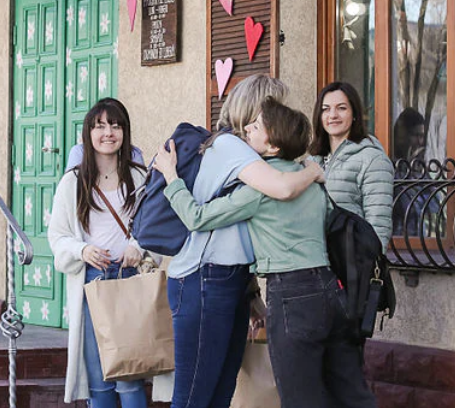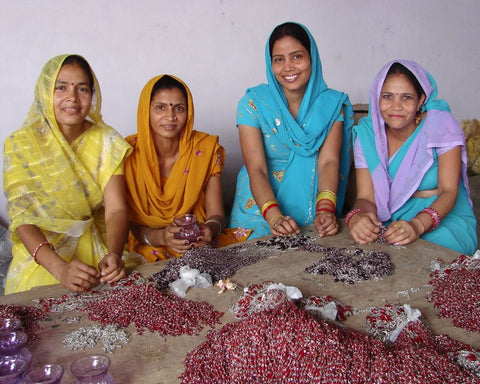March 2024 - Women's History Month
Women’s Rights and Fair Trade: How Fair Trade Empowers Women
With the beginning of Women’s History Month and International Women’s Day comes Bull City Fair Trade’s first blog post! Through this blog, we will be highlighting and discussing various topics connected to fair trade, such as women’s rights, colonialism, and social justice at large.
This month, we are focusing on fair trade’s impact on women’s rights, and how the organizations we work with uplift women by treating them fairly.

When Edna Ruth Byler began selling lace on behalf of Puerto Rican women she met in 1946, she did so because she saw the sheer talent and quality of work these women produced despite living in poverty. She did not know, though, that her doing this would start a cycle of folks in a position of privilege using their resources to help artisans and farmers around the world gain access to a larger market, while also helping them end the cycle of poverty in these communities. What she also didn’t know is that this “cycle”--now known as fair trade–would uplift women in the United States and abroad, sometimes even turning women into landowners in places where the only people who own farms are men.
Regardless of country, gender inequity is a seemingly insurmountable source of oppression and neglect for women and other folks who do not identify as men. Women and girls are expected to do all childcare, cooking, and cleaning, all while maintaining a source of income. Globally, women are most represented in low-wage and low tier jobs while also being key to our production. In the garment industry and seafood processing industry, women make up 80% of workers. In countries with low income, women make up roughly 43% of all agricultural workers, which is about 20% more than the global average. All of this is to say that women are expected to do so much for their families both domestically and financially while facing systemic oppression. So, where does fair trade come in?
Fair trade has principles which guide its moral and ethical compass. Though you are likely familiar with some of the principles, like being against child labor and being paid fairly, you may not be familiar with others–like how fair trade is against discrimination based on gender, marital status, pregnancy, and is also against the use of behavior that is sexually abusive or intimidating. Many women are forced to take pregnancy tests by their employers in other countries as a means to determine if they are “employable” or not.
Below are a few vendors we work with at BCFT who work to empower and uplift the women in their communities by using the guiding principles of fair trade. We hope you get to learn a little bit more about who they are outside of the beautiful items we carry in our store.
Thistle Farms

Photo credit: Thistle Farms. Shop our Thistle Farms products here.
Based out of Nashville, Tennessee, Thistle Farms works with women survivors in their residential program to provide them with stable housing, employment, health care, therapy, and job skills training over the course of two years. Thistle Farms also works on the national level, advocating for policies that empower women, sex workers, and survivors of abuse.
New Creation

New Creation helps women in Moldova escape human trafficking and get into job skills training so they can earn a living wage without being exploited. They partner with an organization named Art Story to design the items made by women in Moldova, helping to create better lives for them and their families. New Creation has a retail store you can visit in Harrisonburg, Virginia!
WorldFinds

WorldFinds just came out with a new line of bags made out of repurposed Kantha and Sari textiles, made by nearly 100 refugee women in Bangladesh whose families were displaced following the war of independence with Pakistan in the 1970s. Daughters of WorldFinds' artisan partners can receive scholarships through their Girls' Education Fund, which seeks to ensure that all girls are able to secure a bright future.
